On March 2, 1972, NASA launched the Pioneer 10 probe. It became the first spacecraft to cross the asteroid belt, visit Jupiter, and gain enough speed to leave the solar system forever. However, these are not the only achievements of Pioneer 10. It also went down in history thanks to a metal plaque with a message installed in case it is picked up by representatives of other civilizations in the distant future.
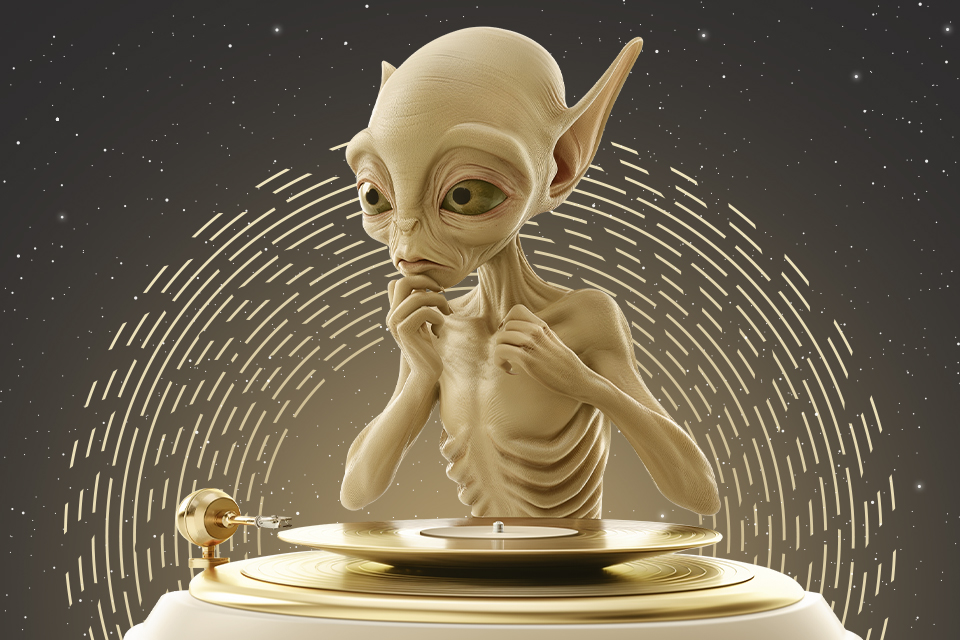
Commemorating the next anniversary of the launch of Pioneer 10, The Universe Space Tech would like to tell you about its message, as well as similar “letters” to the stars carried by other spacecraft.
The Pioneer’s plaque
The plaque installed on board Pioneer 10 is largely the creation of the famous science popularizer Carl Sagan. He managed to persuade NASA to place a small message on board the probe, telling about who built the device and where it came from.
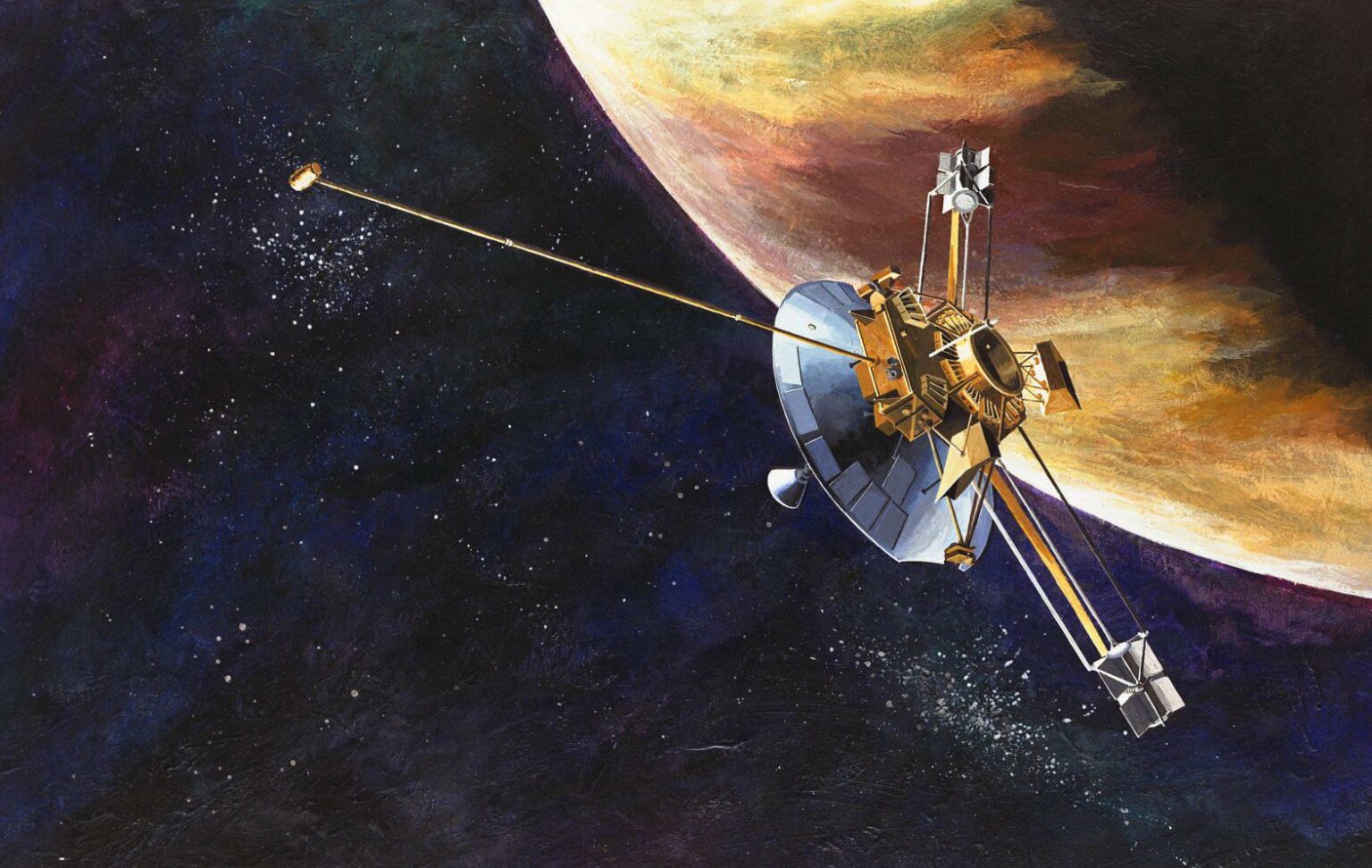
The main problem was that the permission was received shortly before the launch, and Sagan’s group had only three weeks to prepare the message. Therefore, they chose the simplest option: engrave it on a gold-plated aluminum plaque.
The information on the plaque consists of four main blocks. A binary system is used for notation: a vertical line is one, a hyphen is zero. In the upper left part of the plaque is a diagram of the radiation of a hydrogen atom, the most abundant element in the Universe. The wavelength of this radiation is 21 cm, so it is used as a basic unit of measurement.
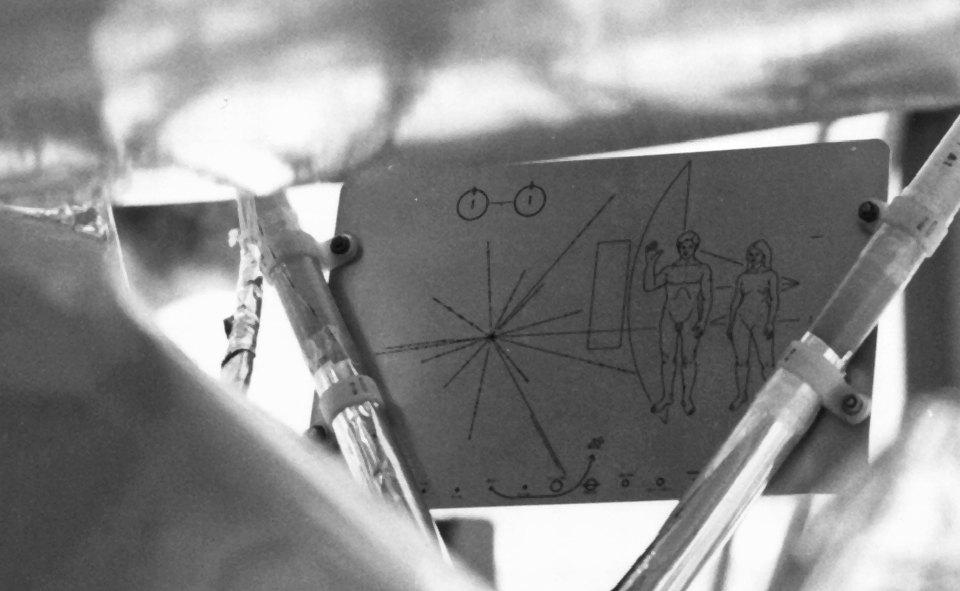
Below is a map showing the position of the Sun in relation to fourteen pulsars. Below that is a general diagram of the solar system (with nine more planets), with an arrow pointing to the flight path of Pioneer 10. Finally, the plaque depicts the spacecraft itself, with naked men and women in the background.
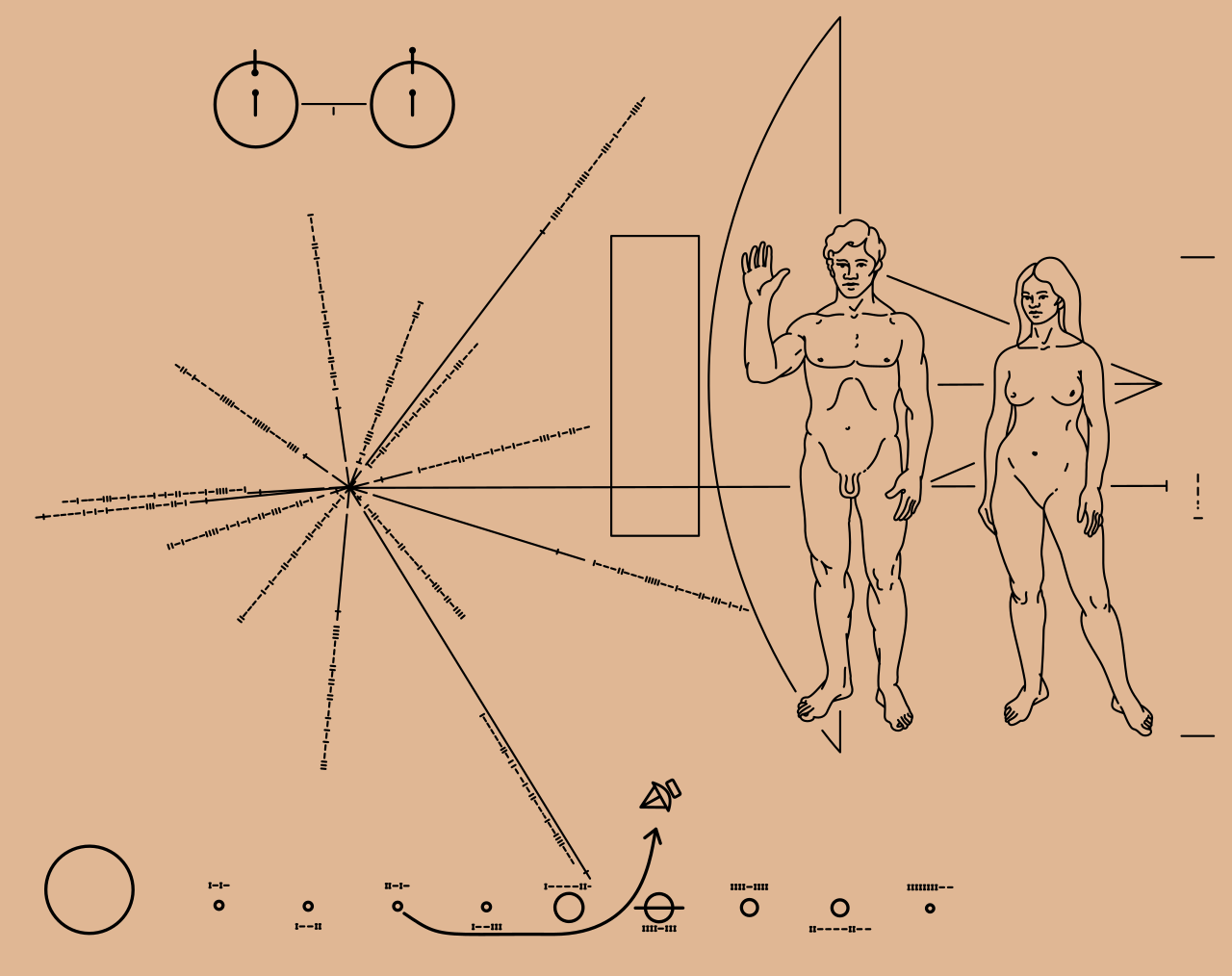
A similar plaque was also placed on board the Pioneer 11 launched in 1973. However, since NASA decided to change the probe’s trajectory during the flight and it also visited Saturn, the information about its route on the plate is not true.
Voyager’s golden record
Five years after the launch of Pioneer 10, NASA sent a pair of Voyager spacecraft into space. It was a much more complex and expensive mission. Unsurprisingly, it also carried a much broader and more elaborate message for the aliens. Its preparation took almost a whole year. This work was done by a special commission, again headed by Carl Sagan.
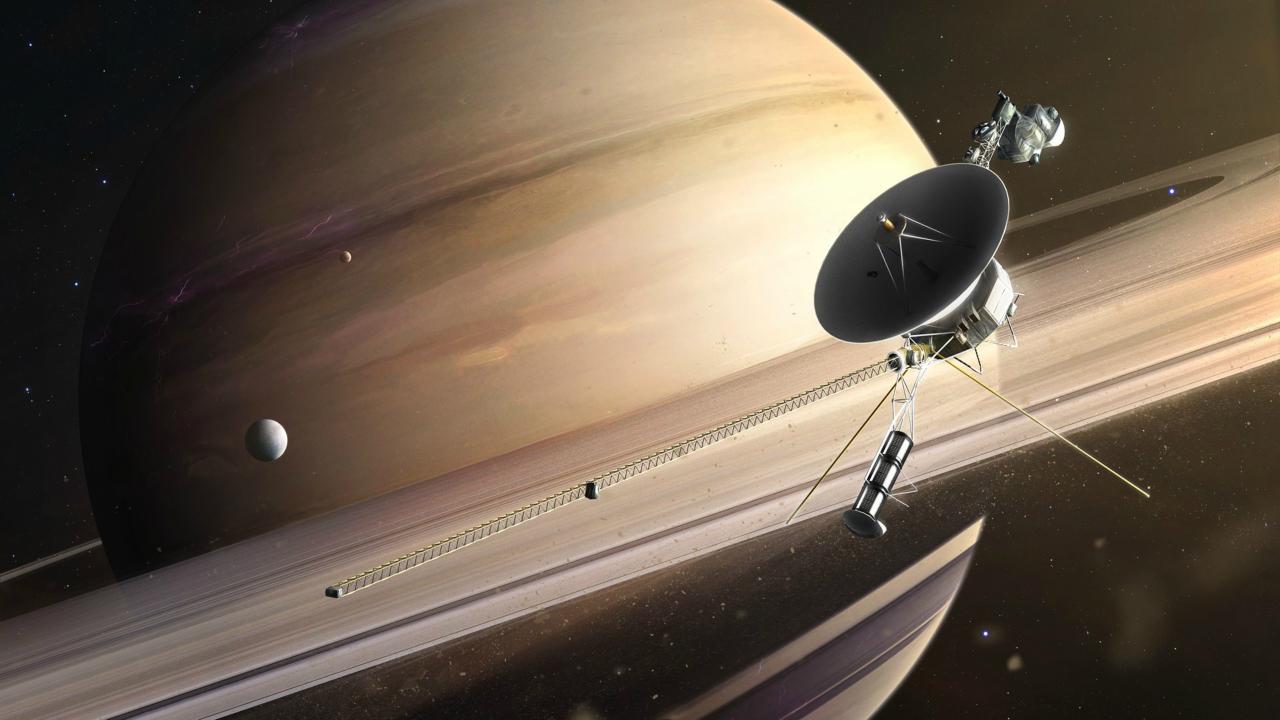
Scientists decided to record the message phonographically on a gilded copper plate. It was placed inside a protective case attached to the body of the device. Its shell is engraved with a diagram depicting the order in which the message is played, the method of converting video signals into images. Finally, the same the same information as on the Pioneer plaque is also present: the radiation pattern of a hydrogen atom, and a pulsar map that allows us to determine the location of the Sun in the Milky Way.
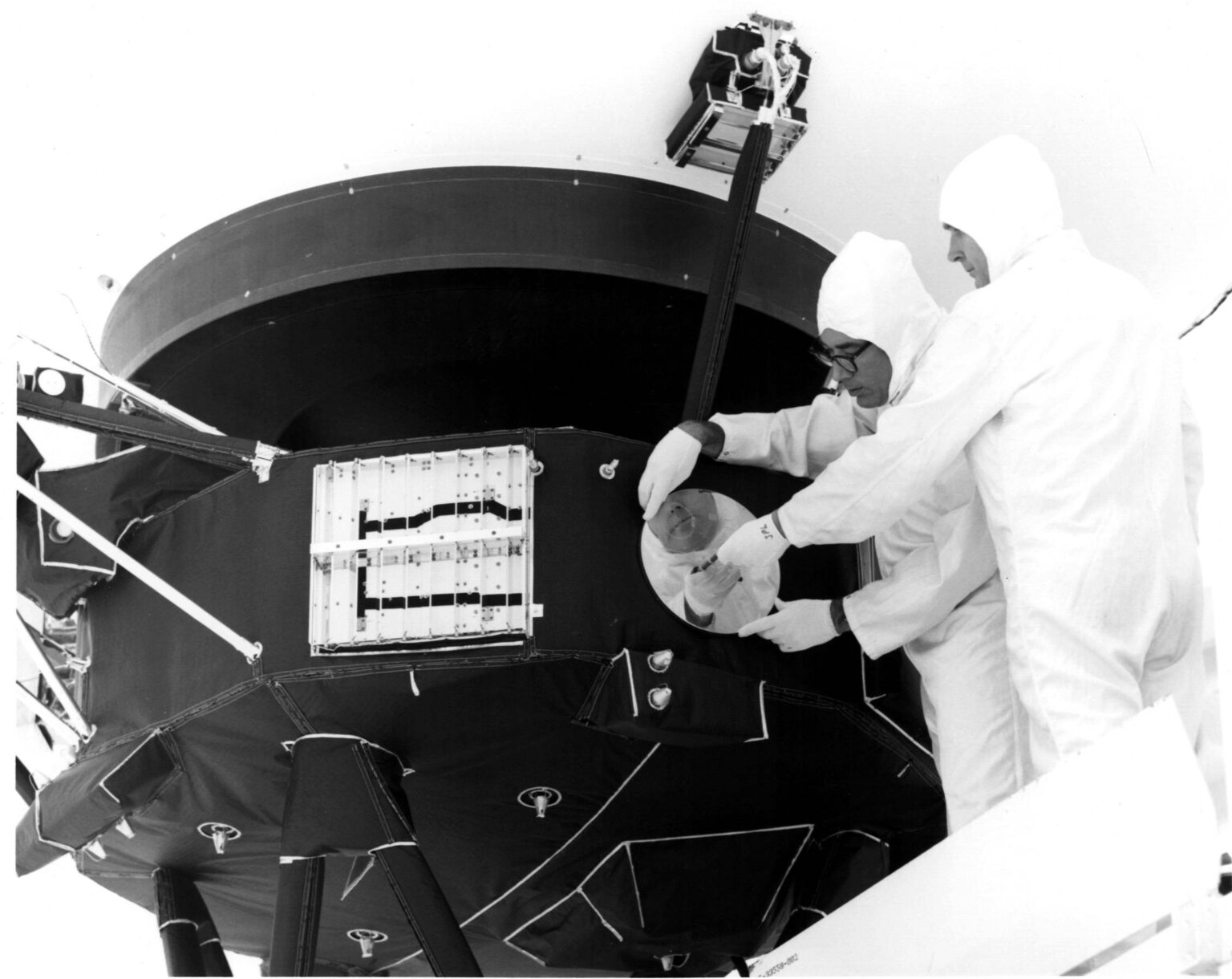
Approximately three quarters of the Voyager record is music. The authors of the message believed that it could convey to aliens an idea of our aesthetics, philosophy and feelings. The Voyager message includes both classical Western and Asian music, as well as pieces from other parts of the world. The record also features an address by the US President and the UN Secretary General, greetings in 55 languages (including Ukrainian), as well as a selection of different sounds of our planet, whale songs, and even a recording of brain waves.
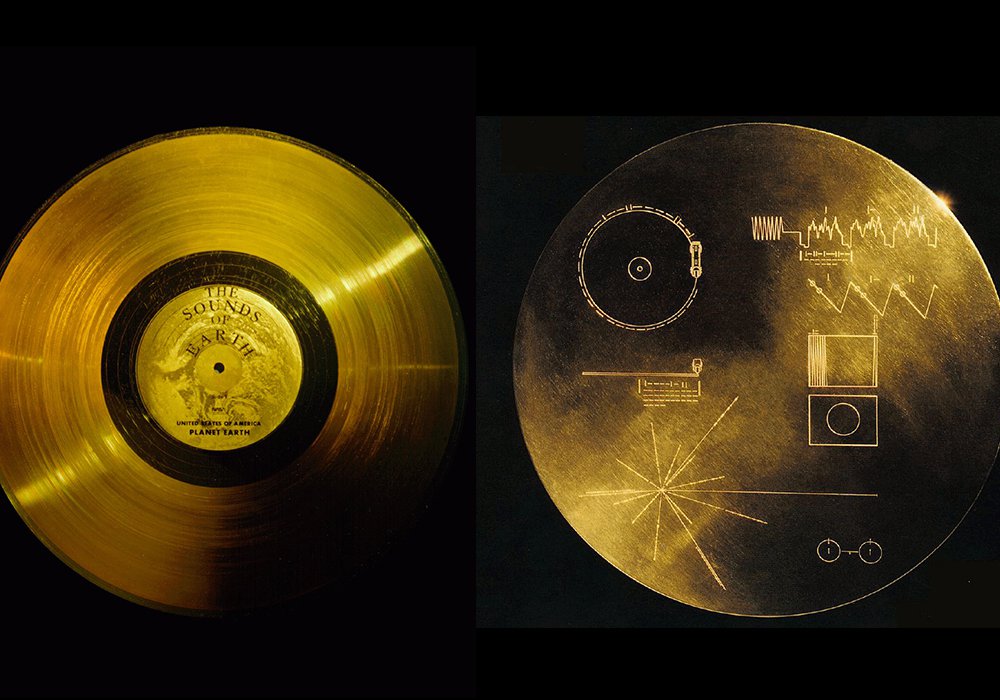
But still, the most famous part of the Voyager message is the 116 photographs that are supposed to give the aliens a basic understanding of the solar system, the Earth, people, our culture and technology. By the way, one of them depicts a Ukrainian, Valeriy Borzov. The photo was taken at the 1972 Munich Olympics, where he won two gold medals and a silver one. After this triumph, Borzov was called the fastest man in the world and a human rocket. It is therefore quite symbolic that his photo was taken on board the fastest spacecraft in history.

Voyager gold records have left a significant mark on culture and science fiction. They appeared in the movie The Man from the Star and the X-Files series, among others. Now, of course, it is impossible to predict whether they will be found by some sentient beings. But, in any case, after the Sun turns into a red giant and swallows the Earth, they have a good chance of remaining the last objects in the universe that prove that intelligent life once existed on our planet.
A “Fare” for New Horizons
If Carl Sagan had been alive when the New Horizons mission was launched, it would probably have had some kind of message for the aliens, too. Unfortunately, Sagan passed away in 1996, and without him, there was no one else who could convince NASA of the need for such a step.
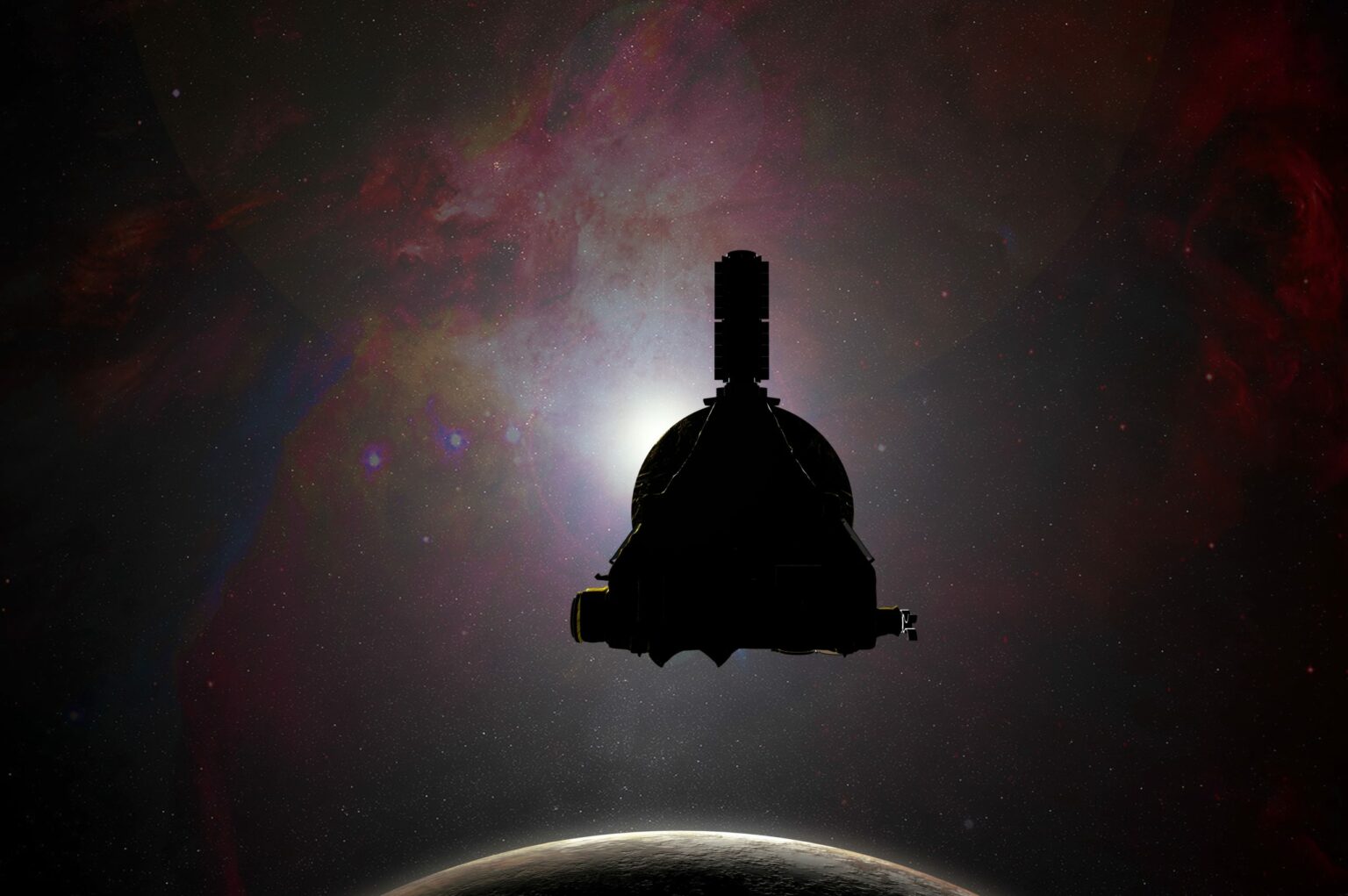
However, New Horizons still carries a set of rather unusual souvenirs. If any aliens intercept it in the future, they will probably be very puzzled trying to guess their purpose.
So, what can be found on board New Horizons? The probe carries several U.S. flags, CDs with pictures of the mission designers and the names of people who participated in the “Send Your Name to Pluto” campaign, a 1991 postage stamp with the inscription “Pluto: Not Yet Explored” and a fragment of the first private spacecraft, SpaceShipOne.
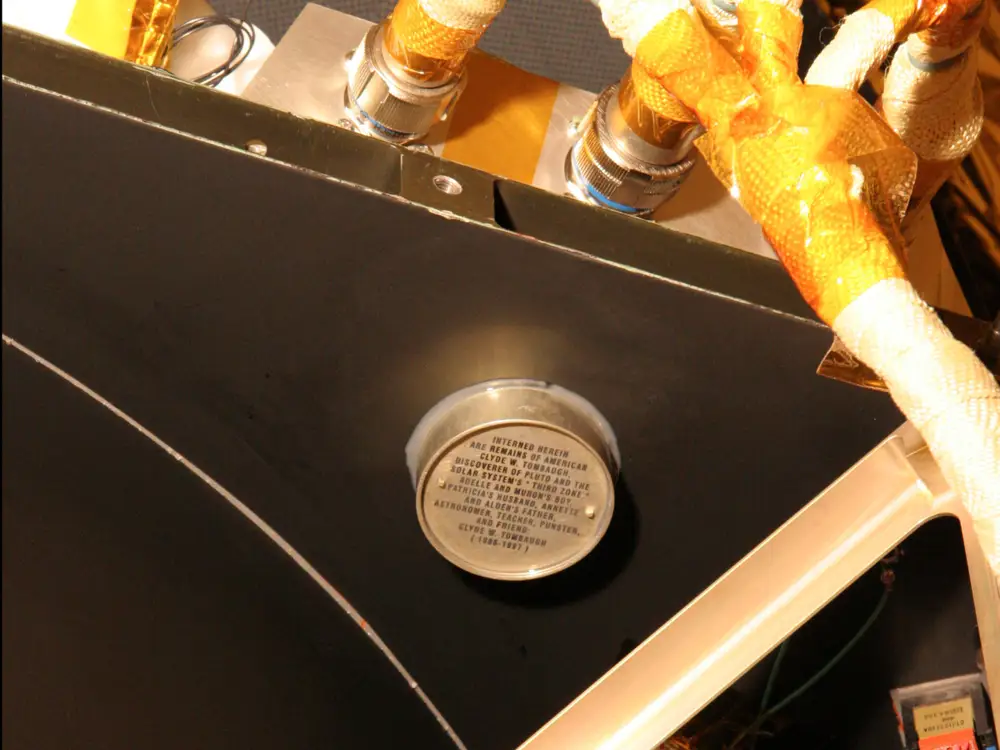
But the capsule, which contains a part of the ashes of Clyde Tombaugh, the discoverer of Pluto, has the greatest symbolic meaning. In this way, the creators of the mission honored the memory of the famous astronomer, giving him the honor of becoming the first person buried in interstellar space. Two coins were also put on board New Horizons, which is hardly a coincidence. During its journey, the probe was supposed to visit Charon, named after the mythical carrier to the realm of the dead. Therefore, the two coins can be considered a kind of “fare” for the transportation of Tombaugh’s soul.
Celebrity quoted on the Lucy probe and Lego for Jupiter
Since 2021, NASA has resumed the tradition of placing plaques with messages on board spacecraft. One was installed on the Lucy probe. However, since, unlike the previous spacecraft we described in this article, it will not leave the solar system, this message is not intended for aliens, but for our descendants — or those creatures that will inhabit the Earth in the distant future.
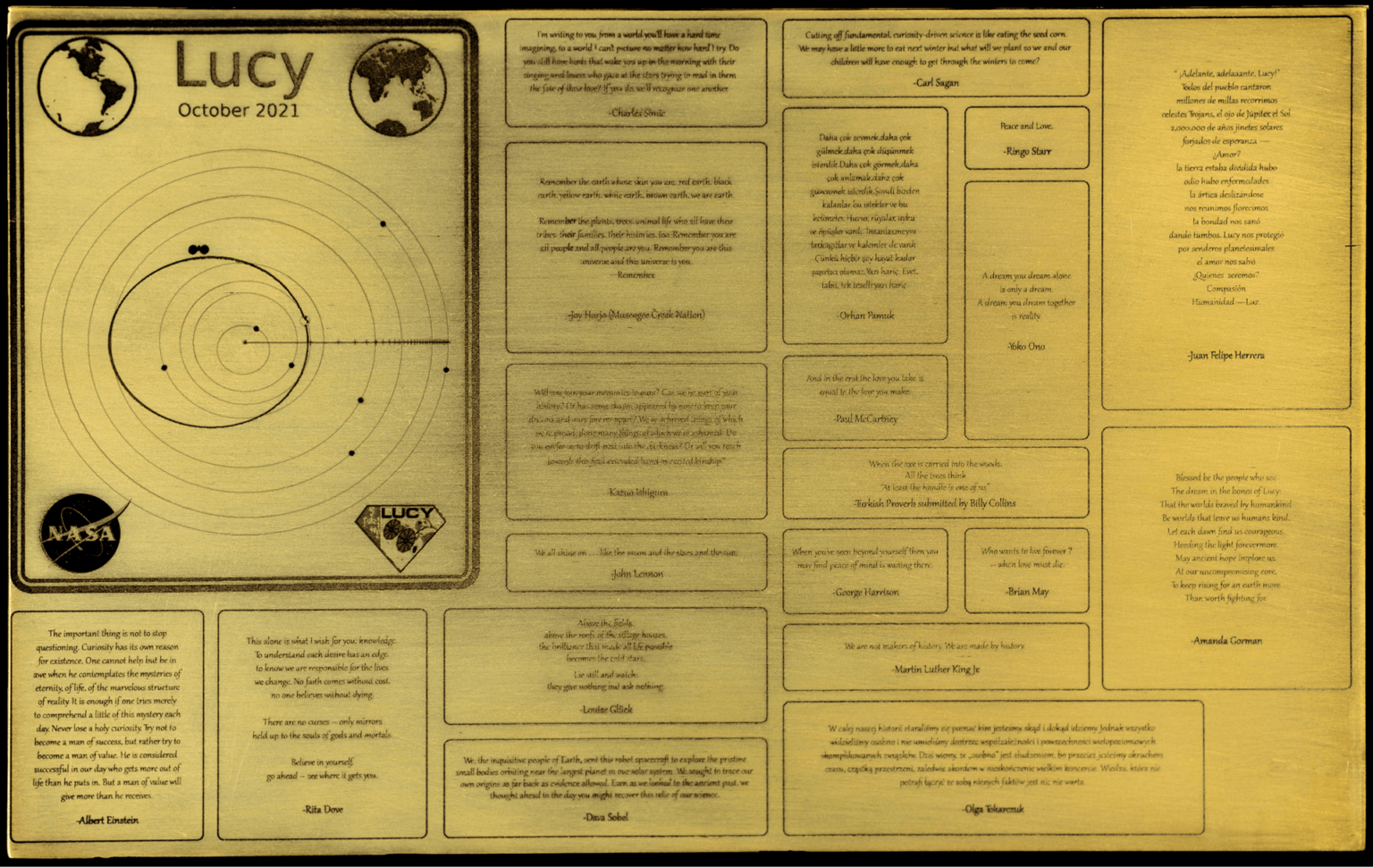
The message is a gilded metal plaque engraved with quotes from famous figures of science and art. Among them are Albert Einstein, Carl Sagan, Martin Luther King, John Lennon, Paul McCartney, Orham Pamuk, Olga Tokarchuk and others.
The plaque is also engraved with a diagram of the solar system on the expected day of the launch, the trajectory of the spacecraft, an image of our planet, the mission logo, and the date “October 2021”.
It’s worth noting that these days NASA also regularly installs chips on spacecraft with the names of people who want to be mentioned in the outer space. This is how the organization popularizes space exploration. Such chips were once installed on the Parker Solar Probe, OSIRIS-REx, DART, and Perseverance rover.
The Europa Clipper spacecraft, which will be launched this fall, also carries a similar chip. Along with the names of the participants of the Message in a Bottle campaign, it also contains a poem by Ada Limon.
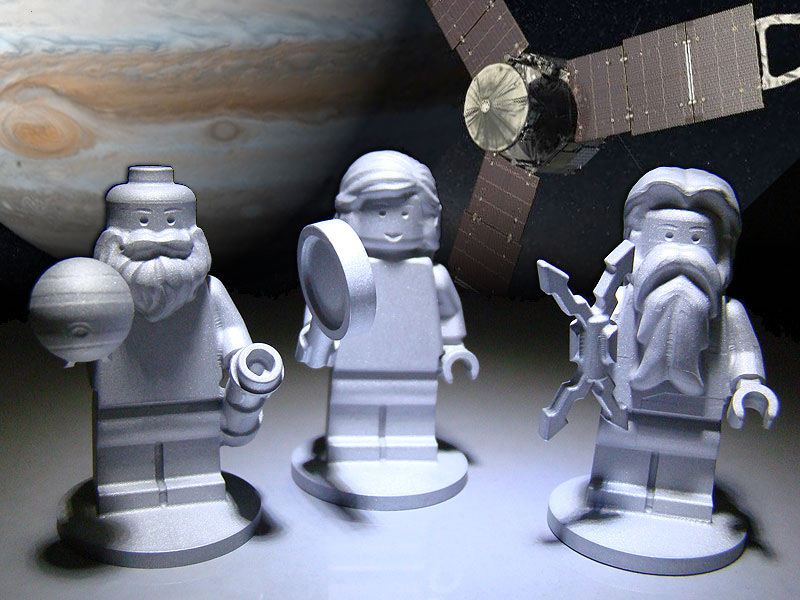
And on board the Juno probe, which studies Jupiter, there is a very unusual “exposition” in the form of a plaque in honor of Galileo Galilei and three Lego figures: one depicts Galileo, while the other two depict Juno and Jupiter. However, since the spacecraft will be burned in the atmosphere of the gas giant at the end of its mission, they are unlikely to end up with any space collectors.

